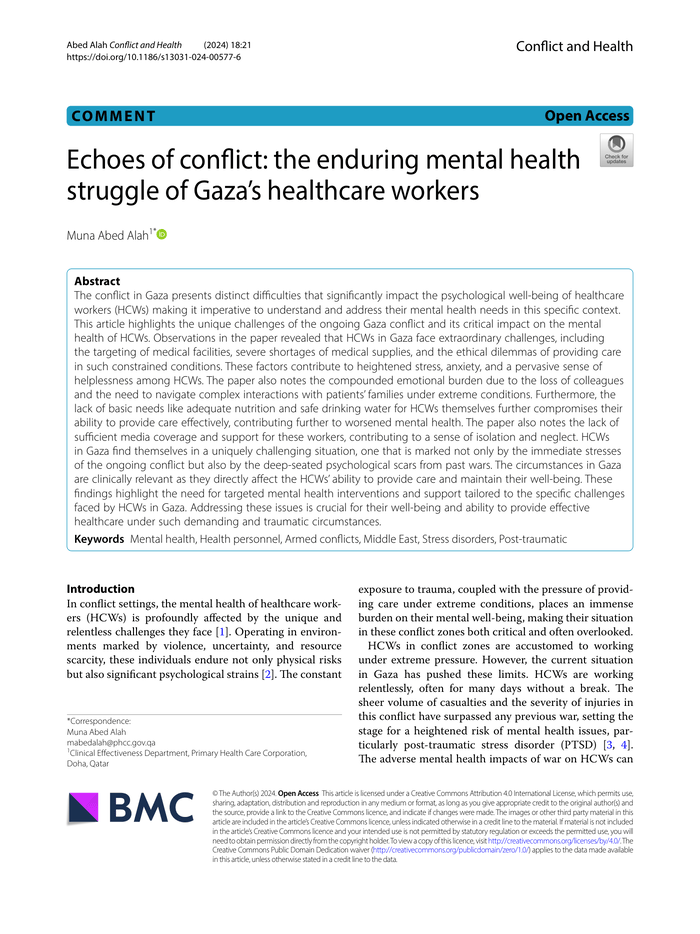
Muna Abed Alah
Conflict and Health volume 18, Article number: 21 (2024)
Abstract
The conflict in Gaza presents distinct difficulties that significantly impact the psychological well-being of healthcare workers (HCWs) making it imperative to understand and address their mental health needs in this specific context. This article highlights the unique challenges of the ongoing Gaza conflict and its critical impact on the mental health of HCWs. Observations in the paper revealed that HCWs in Gaza face extraordinary challenges, including the targeting of medical facilities, severe shortages of medical supplies, and the ethical dilemmas of providing care in such constrained conditions. These factors contribute to heightened stress, anxiety, and a pervasive sense of helplessness among HCWs. The paper also notes the compounded emotional burden due to the loss of colleagues and the need to navigate complex interactions with patients’ families under extreme conditions. Furthermore, the lack of basic needs like adequate nutrition and safe drinking water for HCWs themselves further compromises their ability to provide care effectively, contributing further to worsened mental health. The paper also notes the lack of sufficient media coverage and support for these workers, contributing to a sense of isolation and neglect. HCWs in Gaza find themselves in a uniquely challenging situation, one that is marked not only by the immediate stresses of the ongoing conflict but also by the deep-seated psychological scars from past wars. The circumstances in Gaza are clinically relevant as they directly affect the HCWs’ ability to provide care and maintain their well-being. These findings highlight the need for targeted mental health interventions and support tailored to the specific challenges faced by HCWs in Gaza. Addressing these issues is crucial for their well-being and ability to provide effective healthcare under such demanding and traumatic circumstances.
